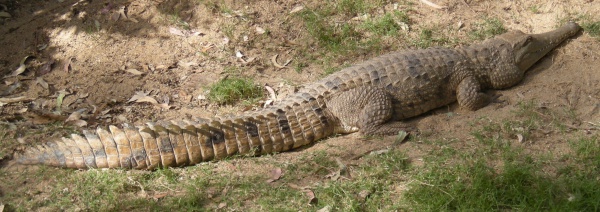Facts About Freshwater crocodile
The freshwater crocodile, often referred to as the Australian freshwater crocodile, Johnstone's crocodile, or simply "freshie" is a distinctive species native to northern Australia. Unlike their larger and more aggressive relatives, the saltwater crocodiles, freshwater crocodiles are not notorious for attacking humans, although they may bite if they feel threatened.
These crocodiles are relatively small when compared to other crocodilians. Males typically grow to about 2.3 to 3 meters, while females reach up to 2.1 meters. They inhabit freshwater environments such as wetlands, billabongs, rivers, and creeks across Western Australia, Queensland, and the Northern Territory.
Although they can tolerate saltwater, freshwater crocodiles do not compete well with their saltwater counterparts. Their diet mainly consists of fish, birds, bats, reptiles, and amphibians, but larger individuals can even prey on animals as sizable as wallabies. They reproduce during the dry season, with their eggs hatching at the onset of the wet season. The adults assist the hatchlings in reaching the water after they emerge from their eggs.
In the wild, freshwater crocodiles have a varied diet that includes crustaceans, insects, fish, frogs, turtles, snakes, birds, and mammals. Their digestive system is specially adapted to ingest prey whole, featuring a muscular gizzard for grinding food and a chamber for enzyme digestion. Moreover, they possess a four-chambered heart, similar to that of birds and mammals, which aids in efficient blood flow regulation while underwater.
Unfortunately, the population of freshwater crocodiles has been declining in recent years. A major threat to their survival is the invasive cane toad, which is poisonous to them. They are also susceptible to parasitic infections, particularly in regions like Darwin. While they are generally not aggressive towards humans, they can inflict a painful bite if provoked. There have been few incidents involving humans, mostly due to mistaken identity or self-defense, and there are no recorded fatalities caused by this species.
